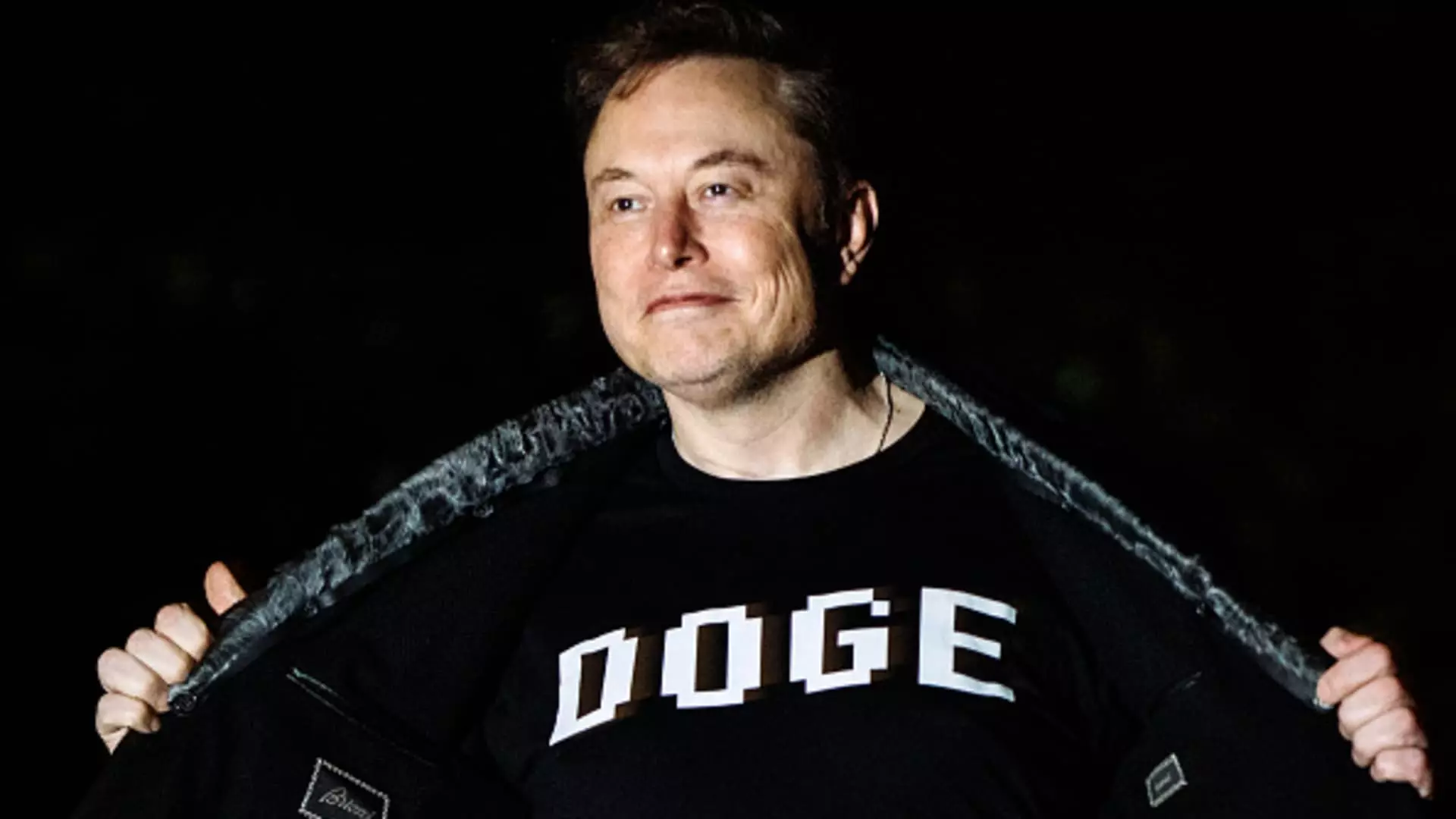The volatility surrounding Tesla stock is no longer a surprising phenomenon, especially with Elon Musk’s recent entanglement in government affairs. While his foray into the Biden administration’s focus on “efficiency” was initially seen as a strategic move, it appears to be doing more harm than good. Reports that he may leave this position might signal a shift back to focusing on his electric vehicle empire. However, as a central figure in both the business world and political arena, Musk’s dual roles have stretched his influence thin and raised significant questions about his priorities. For a company grappling with disappointing delivery numbers, this duality is not only confusing but potentially detrimental.
The Stock’s Roller Coaster Ride
Tesla shares experienced a momentary lift after these rumors, but a deeper analysis reveals that the nearly 5% increase is misleading considering the broader trends. The stock has plummeted over 31% year-to-date and suffered a staggering 36% drop in the first quarter, marking its worst quarterly performance since 2022. Despite a boost attributed to gossip and speculation, no fundamental change in the company’s performance supports such optimism. Instead, the persistent negative sentiment fueled by Musk’s political engagements, including controversies stemming from his Twitter statements, indicates a troubling path ahead. Tesla’s investors should brace for more turbulence as political pressures continue to eclipse business performance, making confidence a scarce commodity.
The Fallout: More than Stock Prices
With Musk at the crossroads of his political and business commitments, the fallout extends beyond fluctuating stock prices. The protests and boycotts aimed at Tesla and the violent incidents targeting its brand correlate strongly with Musk’s controversial positioning. His focus on DOGE—an endeavor that many see as flippant—takes valuable attention from genuine issues facing Tesla and its growth trajectory. Moreover, the imposition of automotive tariffs by the Trump administration that affect key suppliers could hinder production and delivery, further tarnishing the brand’s reputation and financial stability. In essence, Musk’s dalliance in politics threatens the very foundation of Tesla’s brand loyalty.
Market Sentiment and Public Perception
The backlash Musk faces is palpable, particularly among progressive circles. His heavy-handed approach to political influence, coupled with spending millions to back specific judicial candidates, has made him a target for criticism. The recent election of Judge Susan Crawford, a Democrat supported by newsworthy campaigns against Musk, showcases the increasing unpopularity he has fostered. This growing animosity can affect consumer perception of Tesla, making potential buyers wary of aligning themselves with a brand mired in controversy and political drama. In a market hungry for ethical stewardship and innovative vision, such reputational risks could lead to a long-term decline in Tesla’s consumer base.
The Impending Decisions Ahead
If Musk opts to return to Tesla fully, will he be able to mend the fissures created during this political chapter? His time as a special government employee inevitably cascades over his business decisions. Investors are left wondering if the shake-up in leadership at the top will result in a rejuvenated focus on Tesla’s core business or further distractions that jeopardize its technological advancements and market share. One thing is clear: the path forward is fraught with obstacles that could define the future of Tesla in unpredictable ways. The stakes are higher now than ever, and for all of us who hold a stake in this electric vehicle revolution, the consequences will be felt keenly.

